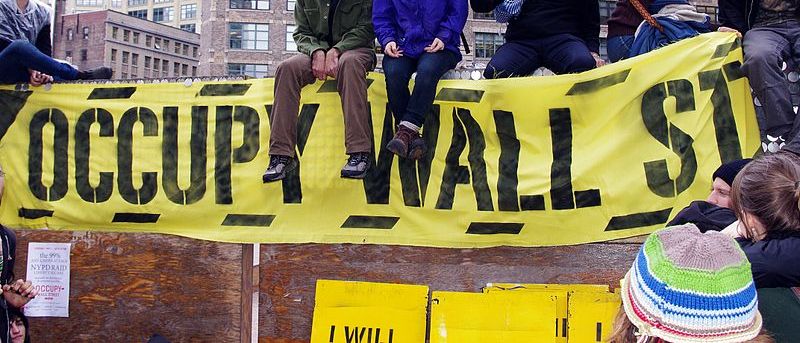online revolution: how social media is changing activism
Social media has become one of the most influential communication channels in human history. In turn, this has changed how activism works on a global level. Through that medium alone, activists have been able to meet and organise large numbers of likeminded thinkers in ways that they simply weren’t able to before.
By removing the limitations of local communication that would normally hinder protest, social media has provided a platform for activists to spread the word for topics as varied as casting in entertainment, police brutality, and even inciting revolution. Considering that 61% of the U.S. population owns a smartphone, revolution could start in the palm of your hand.
Over this past year alone, numerous online campaigns have spread awareness to the lack of diversity and the whitewashing of history that happens all too often in Hollywood. Stonewall, a film that aims to portray the events leading up to the Stonewall riots, is one such offender. The film, which placed a cisgender white male in the lead role, sparked a viral shitstorm with its gross erasure of the black trans women who started the riots in the first place. Since the trailer’s release in early August, over 24,000 people have signed petitions boycotting the film.
Similarly, a live action rendition of childhood favourite Peter Pan received backlash for casting Rooney Mara in the role of Tiger Lily, a Native American character. When responding to criticism, the actress replied,
‘How is that going to work? I can’t play Tiger Lily. Because I always thought of her as a Native American, because that’s always how she has been portrayed. I met with him anyway, because I love him, and I asked how this is going to work. Then he showed me all these images that he had of all these different cultures around the world. He explained to me what his vision was for the Native Village and it just made sense to me. They are natives of Neverland, and it’s a completely made up place. Then it just made sense to me.’
And she’s right about at least one thing: she can’t and shouldn’t be portraying Tiger Lily, and the masses agree. Online petitions have led to nearly 100,000 signatures urging Hollywood to stop casting white actors and actresses in roles that belong to people of colour.
Social media of course, has also bled into political activism. Occupy Wall Street used social media as a means of organising public protests all over the United States. The movement reached 1500 cities across the globe, reaching most major cities. Despite the fact that formal protests have fizzled out since its inception, over 600,000 people follow the movement on facebook, many of whom still interact and share Occupy’s core ideas.
Similarly, the #Blacklivesmatter movement has helped spread awareness about the ways Black people are disenfranchised and deprived of their most basic human rights. Members have made their dissent known not only in protests across the nation, but the movement has also made an impact in the 2016 presidential race, which has prompted some presidential candidates to address issues of race in their platforms.
Other hashtags aim to spread awareness and empathy for marginalised groups, and have provided a platform for people to connect in the wake of a national tragedy. #yesallwomen, helped highlight that violence against women doesn’t end with Elliot Rodger. #girlslikeus allowed trans women and girls to celebrate themselves, since their place in society is nearly always scrutinised. And #whyistayed allowed women to voice their experiences with domestic abuse, after people criticised Janay Palmer of staying in an abusive relationship with Ray Rice
Even globally, social media has had a drastic impact, providing platforms that have incited revolution. In 2014, a student-led protest in Ukraine called for the resignation of President Viktor Yanukovych and his government, resulting in the Ukrainian revolution. Research compiled by the University of California’s School of Public Policy indicate that nearly 59% of the protesters heard about specific protest locations through social media.
Other foreign protests have tremendous support from social media as well. Emily Parker explains the difference between protests in Hong Kong between 2003 and 2014, saying
‘There are many differences between 2003 and now…the biggest distinction is that the 2003 protests felt mostly like a Hong Kong story, separate from the rest of the world. There was some media coverage, but Beijing did not have to worry as much about protest images spreading to the mainland…Today, [however] they enjoy a global network of online support. In the social-media age, protests are no longer local.’
Traditional means of activism will likely always require some sort of traditional activism. Major systemic change won’t happen by subtweeting the president, or signing a series of protests. But as the aforementioned boycotts suggest, social media is an important resource to keep in your activist tool belt. And above all else, social media has provided a platform that elevates the voices of those in marginalised groups, when we would otherwise be silenced.


